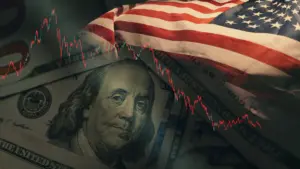President Donald Trump on Thursday launched another sharp attack on Federal Reserve Chairman Jerome Powell, labeling him a “numbskull” for refusing to lower interest rates. During remarks at the White House, Trump argued that a 2-percentage-point rate cut could save the country $600 billion annually, but lamented that Powell has not taken action.
“We’re going to spend $600 billion a year, because of one numbskull who says there’s not enough reason to cut rates,” Trump said, visibly frustrated. Although Trump acknowledged that raising rates might be appropriate if inflation were rising, he pointed out that inflation has actually declined. “I may have to force something,” he added, implying a possible intervention, though he stopped short of threatening to remove Powell from office.
The comments came just hours after new economic data showed that U.S. producer prices rose less than expected in May, easing concerns about an inflation spike. This development gave the administration more reason to press for rate cuts, as inflation data now appears more favorable to such a move.
Trump’s remarks followed similar statements from Vice President JD Vance and Commerce Secretary Howard Lutnick, both of whom expressed frustration with the Fed’s inaction. Lutnick commented on television that cutting rates would be “easy,” arguing that inflation is low and the economy is prepared for such a shift.
Despite these vocal criticisms, financial markets largely shrugged off Trump’s remarks. Traders are not expecting the Fed to cut rates at its upcoming meetings in June or July, although there is growing speculation that a cut may come in September, with market odds rising slightly.
This isn’t the first time Trump has targeted Powell. In April, concerns were raised when Trump seemed to be contemplating firing the Fed Chair. Though he backed off after a bout of market volatility, he continues to criticize Powell publicly. On Thursday, Trump clarified again that he is “not going to fire” Powell but added, “I don’t know why it would be so bad.”
Powell, for his part, has maintained that the law protects his position, and recent interpretations by the Supreme Court suggest Fed governors may be more insulated from dismissal than leaders of other federal agencies.
As political tensions rise and economic indicators remain mixed, the debate over interest rates is likely to stay in the spotlight—especially with Trump turning up the volume ahead of key economic decisions.




